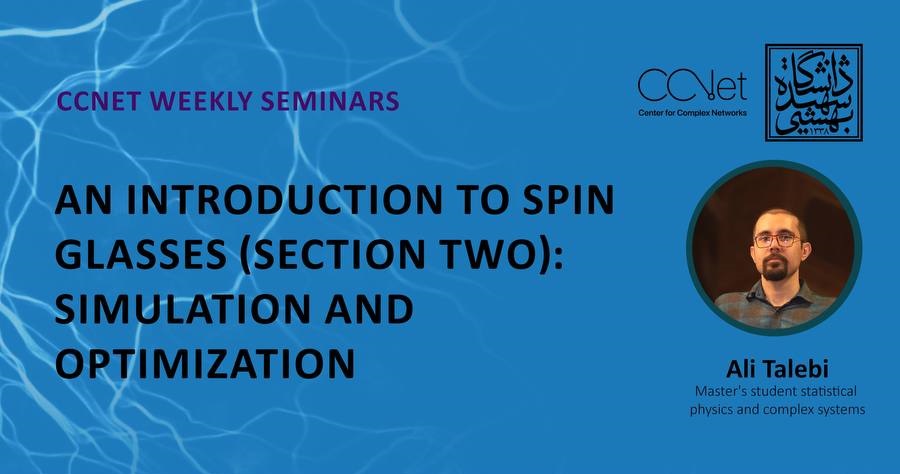Spin glass systems exhibit both ferromagnetic and antiferromagnetic interactions, making it challenging to simulate the behavior of these disordered systems due to the resulting frustration. Computational simulations of these systems are crucial for investigating phase transitions. A significant number of optimization problems can be mapped onto this model. The recent Nobel Prize awarded to John Hopfield in 2024, recognizing his work using this model to develop neural networks, has further emphasized the importance of spin glass systems.
In this seminar, I will begin by revisiting the theoretical concepts underlying these systems. I will then explain the Markov Chain Monte Carlo (MCMC) method, a common approach for finding the system’s minimum energy. Additionally, we will explore parallel tempering, also known as (replica exchange MCMC sampling), and simulated annealing to review new methods for solving optimization problems. Finally, I will provide a brief overview of quantum annealing.
Follow us:
t.me/complexity
Find Us:
Room 307, Department of Physics, Shahid Beheshti University.
G. C. Evin, Tehran 19839, Iran


